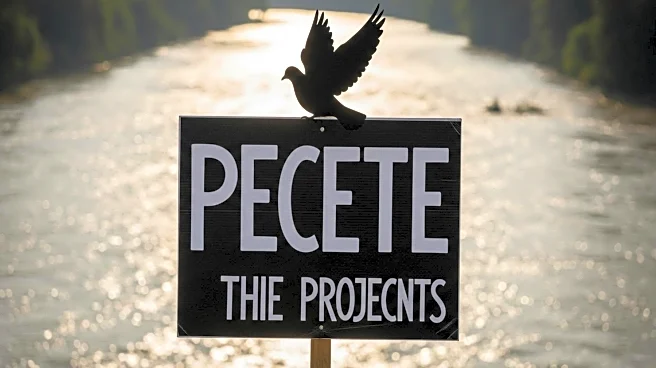What's Happening?
The Philippine president has called for public outrage over corruption in flood-control projects to be expressed peacefully. The country has spent approximately 545 billion pesos ($9.6 billion) on flood mitigation projects over the past three years, many of which are under scrutiny for being substandard or non-existent. President Ferdinand Marcos Jr. has promised an independent investigation that will not spare his allies in the government. Allegations have surfaced against several congressmen and public works officials, accused of receiving kickbacks. The scandal has sparked protests, with a larger demonstration planned for September 21. The president has encouraged citizens to voice their anger but maintain peace during protests.
Why It's Important?
The corruption scandal in the Philippines highlights significant issues in governance and public trust. The misuse of funds intended for flood-control projects affects the country's ability to manage natural disasters, which are frequent due to its geographical location. The scandal has implications for political stability, as it involves high-ranking officials and legislators. Public outrage, if not managed peacefully, could lead to unrest and destabilize the government. The situation underscores the need for transparency and accountability in public projects, which are crucial for economic development and disaster preparedness.
What's Next?
The Philippine government is expected to continue its investigation into the corruption allegations, with potential legal actions against those involved. The planned protest on September 21 may draw significant public attention and participation, potentially influencing political discourse and policy changes. The government has placed police and military forces on alert to ensure the protests remain peaceful. The outcome of the investigation and public response could lead to reforms in how public projects are managed and monitored.
Beyond the Headlines
The scandal may have long-term implications for the Philippines' political landscape, potentially affecting future elections and public trust in government institutions. It also raises ethical questions about the accountability of public officials and the role of civil society in demanding transparency. The situation could lead to increased scrutiny of government projects and a push for anti-corruption measures.










